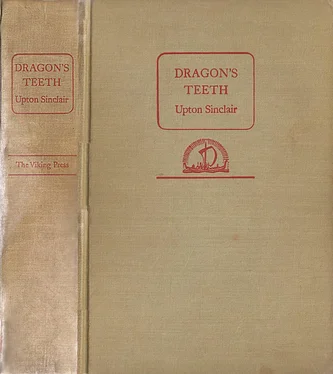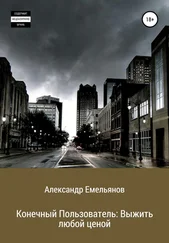Пользователь - o 3b3e7475144cf77c
Здесь есть возможность читать онлайн «Пользователь - o 3b3e7475144cf77c» весь текст электронной книги совершенно бесплатно (целиком полную версию без сокращений). В некоторых случаях можно слушать аудио, скачать через торрент в формате fb2 и присутствует краткое содержание. Жанр: Старинная литература, на русском языке. Описание произведения, (предисловие) а так же отзывы посетителей доступны на портале библиотеки ЛибКат.
- Название:o 3b3e7475144cf77c
- Автор:
- Жанр:
- Год:неизвестен
- ISBN:нет данных
- Рейтинг книги:4 / 5. Голосов: 1
-
Избранное:Добавить в избранное
- Отзывы:
-
Ваша оценка:
- 80
- 1
- 2
- 3
- 4
- 5
o 3b3e7475144cf77c: краткое содержание, описание и аннотация
Предлагаем к чтению аннотацию, описание, краткое содержание или предисловие (зависит от того, что написал сам автор книги «o 3b3e7475144cf77c»). Если вы не нашли необходимую информацию о книге — напишите в комментариях, мы постараемся отыскать её.
o 3b3e7475144cf77c — читать онлайн бесплатно полную книгу (весь текст) целиком
Ниже представлен текст книги, разбитый по страницам. Система сохранения места последней прочитанной страницы, позволяет с удобством читать онлайн бесплатно книгу «o 3b3e7475144cf77c», без необходимости каждый раз заново искать на чём Вы остановились. Поставьте закладку, и сможете в любой момент перейти на страницу, на которой закончили чтение.
Интервал:
Закладка:
pleasure are thus combined! A thousand old masters had made life easy for him, by producing
works over which he could rave and feel proud when he secured one for some customer.
There were always wealthy persons on the hunt for famous works of art; and Zoltan would
caution his Pink friend not to be too contemptuous in his attitude toward such persons. Many
were ignorant and pretentious, but others were genuine art lovers who could be helped and
encouraged; and that was not only good business, it was a public service, for many of these
collections would come to museums in the end. Zoltan didn't know much about economics, and
didn't bother his head with Lanny's revolutionary talk; he said that, no matter what happened,
the paintings would survive, and people would want to see them, and there would be occupation
for the man who had cultivated his tastes and could tell the rare and precious from the cheap
and common.
VIII
Lanny rented a car and motored Zoltan out to have lunch with Emily Chattersworth at her
estate, Les Forêts, where she spent the greater part of each year, a very grand place of which
Lanny had memories from childhood. On this lawn under the great beech-trees he had
listened to Anatole France exposing the scandals of the kings and queens of old-time France. In
this drawing-room he had played the piano for Isadora Duncan, and had been invited to elope
with her. Here also he had played accompaniments for Hansi, the day when Hansi and Bess
had met and fallen irrevocably in love.
The white-haired chatelaine wanted to hear the news of all the families. She was interested in
the story of Zaharoff and the duquesa, whom she had known. Emily had had a seance with
Madame Zys-zynski, but hadn't got any significant results; it must be because she was hostile
to the idea, and had frightened the spirits! She preferred to ask Zoltan's opinion of the Salon,
which she had visited. Having a couple of paintings which no longer appealed to her taste, she
showed them to the expert and heard his estimate of what they might bring. She told him not to
hurry; she had lost a lot of money, as everybody else had, but apparently it was only a paper
loss, for the stocks were still paying dividends. Lanny advised her not to count on that.
A young Pink wouldn't come to Paris without calling at the office of Le Populaire and
exchanging ideas with Jean Longuet and Leon Blum. Lanny knew what they thought, because he
read their paper, but they would want to hear how the workers' education movement was going
in the Midi, and what the son of an American industrialist had seen in the Soviet Union. From a
luncheon with Longuet, Lanny strolled to look at picture exhibitions, and then climbed the
Butte de Montmartre to the unpretentious apartment where Jesse Blackless was in the midst of
composing a manifesto to be published in L'Humanite, denouncing Longuet and his paper as
agents and tools of capitalist reaction. When Jesse learned that his nephew had been to Odessa he
began to ply him with questions, eager for every crumb of reassurance as to the progress of the
Five-Year Plan.
Jesse lived here with his companion, a Communist newspaper employee. Theirs was a
hard-working life with few pleasures; Jesse had no time to paint, he said; the
reactionaries were getting ready to shut down upon the organized workers and put them
out of business. The next elections in France might be the last to be held under the
Republic. Lanny's Red uncle lived under the shadow of impending class war; his life was
consecrated to hating the capitalist system and teaching others to share that feeling.
He was going into this campaign to fight both capitalists and Socialists. Lanny thought
it was a tragedy that the labor groups couldn't get together to oppose enemies so much
stronger than themselves. But there couldn't be collaboration between those who
thought the change might be brought about by parliamentary action and those who
thought that it would have to be done by force. When you used the last phrase to Jesse
Blackless, he would insist that it was the capitalists who would use force, and that the
attitude of the workers was purely defensive; they would be attacked, their organizations
overthrown—the whole pattern had been revealed in Italy.
Lanny would answer: "That is just quibbling. The Communists take an attitude which
makes force inevitable. If you start to draw a gun on a man, he knows that his life
depends upon his drawing first."
Could capitalism be changed gradually? Could the job be done by voting some
politicians out of office and voting others in? Lanny had come upon a quotation of Karl
Marx, admitting that a gradual change might be brought about in the Anglo-Saxon
countries, which had had parliamentary institutions for a long time. Most Reds didn't
know that their master had said that, and wouldn't believe it when you told them; it
seemed to give the whole Bolshevik case away. Jesse said that quoting Marx was like
quoting the Bible: you could find anything you wanted.
They went on arguing, saying little that they hadn't said before. Presently Francoise
came in, and they stopped, because she didn't share the carefree American sense of
humor, and would get irritated with Lanny. He told her the good things about the
Soviet Union; and soon came Suzette, her young sister, married to one of the murderous taxi
drivers of Paris. Uncle Jesse said this gargon had the right solution of the social problem: to
run over all the bourgeois, while using Suzette to increase the Red population. They had a
second baby.
The women set to work to prepare supper, and Lanny excused himself and walked back to
the Crillon to meet his father. When Robbie asked: "What have you been doing?" he answered:
"Looking at pictures." It was the truth and nothing but the truth—yet not the whole truth!
IX
One other duty: a visit to the Chateau de Bruyne. Lanny had promised Marie on her deathbed
that he would never forget her two boys. There wasn't much that he could do for them, but they
were friendly fellows and glad to tell him of their doings. He phoned to the father, who came
and motored him out. Denis de Bruyne, though somewhat over seventy, was vigorous; his hair
had become white, and his dark, sad eyes and pale aristocratic features made him a person of
distinction. He was glad to see Lanny because of the memories they shared.
On the way they talked politics, and it was curious to note how the same world could appear
so different to two different men. Denis de Bruyne, capitalist on a modest scale, owner of a fleet
of taxicabs and employer of Suzette's husband—though he didn't know it—agreed with Jesse
Blackless that the Communists were strong in Paris and other industrial centers and that they
meant to use force if they could get enough of it. Denis's conception of statesmanship was to draw
the gun first. He was a Nationalist, and was going to put up money to keep Jesse and his sort from
getting power. Lanny listened, and this was agreeable to an entrepreneur who was so certain of his
own position.
Denis de Bruyne was worried about the state of his country, which was in a bad way
financially, having counted upon German reparations and been cheated out of most of her
expectations. A French Nationalist blamed the British business men and statesmen; Britain
was no true ally of France, but a rival; Britain used Germany to keep France from growing
strong. Why did American business men further this policy, helping Germany to get on her feet,
Читать дальшеИнтервал:
Закладка:
Похожие книги на «o 3b3e7475144cf77c»
Представляем Вашему вниманию похожие книги на «o 3b3e7475144cf77c» списком для выбора. Мы отобрали схожую по названию и смыслу литературу в надежде предоставить читателям больше вариантов отыскать новые, интересные, ещё непрочитанные произведения.
Обсуждение, отзывы о книге «o 3b3e7475144cf77c» и просто собственные мнения читателей. Оставьте ваши комментарии, напишите, что Вы думаете о произведении, его смысле или главных героях. Укажите что конкретно понравилось, а что нет, и почему Вы так считаете.




